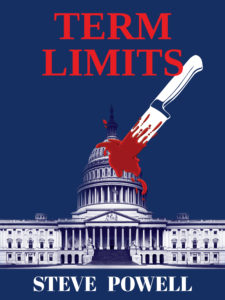‘Plague’ On sale now £9.99
Tags
Follow J.J.Anderson on Facebook
Follow J.J.Anderson on Pinterest
Archives
-
Recent Posts
Categories
http://www.thestorybazaar.com/rss.xml
Social
-
Privacy & Cookies: This site uses cookies. By continuing to use this website, you agree to their use.
To find out more, including how to control cookies, see here: Cookie Policy
A feast for the imagination


 RSS – Posts
RSS – Posts
Facebook Ads – No Politics
In my experience, IT systems have information on just about everything, from IP addresses to source of payments, so I find this somewhat surprising. Yet, since this story broke Facebook has been trying to close it down, threatening The Guardian with lawyers, denying what happened until forced to acknowledge it and so on, so perhaps that isn’t so surprising after all.
Yet, to add insult to injury, Facebook is now purging the pages of various groups, some right-wing hate-speakers, some civil liberties groups, as being too ‘political’ without any transparency about what they are doing or why. A form of censorship, stable door closing long after the horse has bolted?
In addition it is refusing certain advertisements. In one instance this relates to a book – Term Limits, by US writer Steve Powell and published by a publisher local to me – Claret Press. The U.S. audio rights have already been sold and the audio book is to be marketed shortly, so a big (and expensive) marketing campaign for the printed and ‘e’ book was planned. This was mostly digital, in order to drive the book up the Amazon rankings. One aspect of this was advertising on Facebook.
The book is a pacey thriller, a page turner, and, without giving away the plot, is about Washington corruption. One way of tackling said corruption would be to place a limit on the number of terms a Senator or Congressman or woman can hold office, thus freeing them to vote with principle not party and on behalf of their constituents, rather than be in thrall to those vested interests which offer funding for repeated campaigns to get them re-elected. An intriguing and timely idea for a book. It was, the publicity company assumed, rejected by Facebook because it was ‘political’. No explanation for refusing advertising was given.
repeated campaigns to get them re-elected. An intriguing and timely idea for a book. It was, the publicity company assumed, rejected by Facebook because it was ‘political’. No explanation for refusing advertising was given.
This is the same Facebook which allowed micro-targeted ads repeating the lie that leaving the EU would free up £350 million a week to be invested in the NHS. The same Facebook which allowed ads saying that Turkey was going to join the EU within a twelvemonth and playing on people’s fear of terrorism. The same Facebook which says it doesn’t hold further information about Russian interference in the US Presidential election. The same Facebook which doesn’t pay its taxes ( a tax at point of sale might be the answer here, so the countries in which the company makes its sales receives the tax ).
Yet people still use Facebook, myself included, in my case because anyone who wants to operate any kind of business or livelihood needs to have a presence on-line and that, unfortunately, means Facebook ( and Twitter and the others, all owned by Facebook ). This is what happens when you have monopolies (something for the EU Competition Commissioner perhaps, the US is doing nothing). Accountable only to their shareholders, they don’t need to explain.
For more political comment, or about local presses, see Austerity and Grey Eminences Governmental Response, a short play Clapham Presses Small Publishers
Share this:
Posted on 15th October 2018 by juliej Leave a comment
This entry was posted in Books, Political comment and tagged Books, Political comment. Bookmark the permalink.